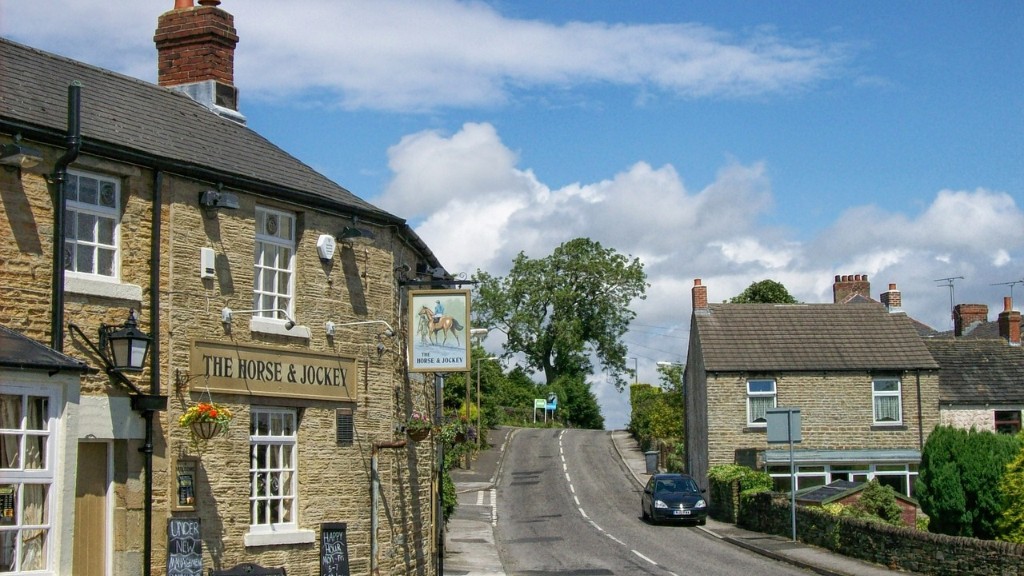Most people wonder why there is no unified Great Britain football team, even though England, Scotland, Wales, and Northern Ireland are all part of the United Kingdom. Each of these four countries has their own football association and makes decisions regarding football independently, including their own teams in international tournaments.
The history of football in the UK goes back to the 19th century, when the first teams were established in each of these countries. For many years, people thought football should be a collective effort of all four countries in the British Isles. However, due to political and economic divisions, this idea did not see the light of day.
An official attempt to unify the football teams of the British Isles was made in the late 19th century. This was known as the ‘British Home Championship’. Although the tournament went ahead, it was never considered to be a unified British football team and further attempts failed due to political disagreements.
In recent years, there has been some talk about a unified Great Britain football team. Some experts believe that unifying all four countries and forming a Great Britain football team would boost spirits. It would also bring greater recognition to the sport in the UK, with more people getting interested and taking part in the different types of football.
Others argue that the strength of the four national teams outweighs the advantages of a unified Great Britain football team. For example, the four national teams are able to maintain their individual identities due to playing separate tournaments. This also allows the opportunity to compete on an international scale, giving fans something to cheer for in each of the four countries.
It is also important to consider that although there exists a strong sense of British identity, there are also strong feelings of national identity within each of the four countries. This is a key factor in why a unified British team has not been considered further.
History of Football in the United Kingdom
Football in the UK has been popular for many decades, with teams established in each of the four countries in the 19th century. Since then, the sport has grown in popularity and some of the best professional teams in the world are based in the UK. Many people in the UK are passionate about football, and this often leads to interesting rivalries between fans.
Each of the four countries includes some of the oldest and most traditional football clubs in the world. In England, this includes teams like Manchester United and Liverpool. In Scotland, Celtic and Rangers are two of the biggest clubs. In Wales, Cardiff City and Swansea City stand out, while Linfield and Glentoran are prominent in Northern Ireland.
International tournaments like the World Cup and the European Championship also provide an opportunity for football fans to get behind their national teams. Each team is made up of players from their respective countries, which adds to the rivalry between them. These tournaments are watched around the world, bringing attention to the UK and its football teams.
Football in the UK is also associated with charity. Many teams, such as Manchester United, support charities and organisations such as UNICEF. These teams use their fame to promote different causes and bring attention to issues that are close to their hearts.
Political and Economic Divisions
Football in the UK has been affected by the political and economic divisions within the country. Historically, England, Scotland, Wales, and Northern Ireland have their own political systems, and this has made the idea of a unified British football team difficult to achieve. Not only does each country have its own political system, but they also have their own economic systems, which can be seen as a barrier to unification.
These divisions have made it difficult for the four national teams in the UK to work together. This has led to a rivalry between them, which can often be seen during international tournaments. Despite this, the four teams do cooperate in certain aspects, such as participating in joint training camps.
The political and economic divisions between the countries have also led to a lack of financial resources for football teams, making it difficult for them to compete at the highest level. This has been a major issue for many years, and it is something that the four countries must address if the idea of a unified British football team is to become a reality.
Advantages and Disadvantages of a Unified British Team
Those who are in favour of a unified British team believe that it would promote unity and bring more attention to the sport in the UK. Fans would also have the opportunity to rally around a single team, giving them something to cheer for on an international scale. Furthermore, it would provide a platform for the four countries to work together and strengthen relations.
However, there are also some disadvantages associated with a unified British team. It could lead to a loss of national identity, with teams no longer competing in their own country’s tournaments. This could also see the number of teams in each country reducing, making it more difficult for teams to reach the top level.
In addition, some experts argue that a unified British team may not perform as well as the four national teams. This is because the best players from each country may not be available to play in a unified team, potentially weakening the team’s performance.
Alternatives to a Unified British Team
Rather than focusing on a unified British team, there are other ways to promote football in the UK. For example, Football Association Premier Leagues can be established that unite teams from all four countries in the UK. This would give fans in the UK the chance to watch football from multiple countries, giving them exciting matches to cheer for.
In addition, each of the four national teams could play friendly matches against each other. This could bring a sense of unity among the countries, as well as giving fans the chance to see their teams compete against each other.
Finally, funding could be made available to each of the four national teams. This could help to improve the quality of the teams and provide more opportunities for players to travel and compete in international tournaments.
Conclusion
While there is a strong desire for a unified British football team, it is clear that the political and economic divisions between the countries make it difficult to achieve. There are also strong feelings of national identity that would likely be damaged if a unified team was formed. However, there are alternatives to a unified team that could help to bring attention to football in the UK and strengthen relations between the four countries.





